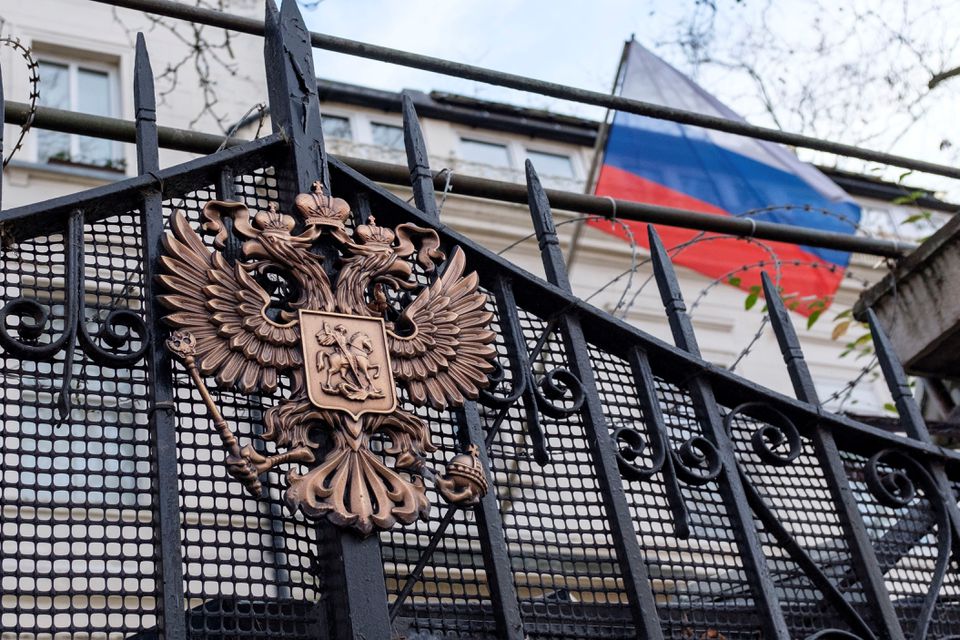Russian diplomatic activity on the island has not only not declined since the outbreak of the war in Ukraine, but has actually grown, according to a recent report by an anti-Kremlin website.
The Dossier Center, run by exiled Russian oligarch Mikhail Khodorkovsky, ran an extensive report on Russian diplomatic and intelligence activity in Cyprus.
Titled ‘The liberty of the secret services’, the report notes that at the start of hostilities in Ukraine in February 2022, European Union countries “expelled hundreds of Russian diplomats, banned Russian propaganda channels, and imposed visa restrictions and sanctions.
“It may seem that the way to Europe is now closed for Russian intelligence services, but it is not,” the report went on.
“An important Kremlin outpost in the European Union remains Cyprus, a state with a reputation as an offshore zone and more than a hundred thousand Russians and natives of Russia and the former Soviet Union. Unlike most other EU countries, not a single diplomat has been expelled from the island since the beginning of the war in Ukraine, and in 2022 the Russian embassy was headed by a lieutenant general of the FSB.”
According to the Dossier Center, while other EU nations “expelled Russian diplomats for espionage by the dozens, Cyprus, although following the EU’s foreign policy course of war and support for sanctions, did not interfere with the activities of Russian diplomats and propaganda: the authorities restricted cable broadcasting of RT, but Russian channels are still available on the Internet.
“No Russian diplomats have been deported. In total, the Russian embassy and the Russian House in small Cyprus have about 300 employees.”
Citing its sources, the website said that since the beginning of armed hostilities in Ukraine, the number of Russian diplomats in Cyprus “has only increased”.
The report goes on to describe what it claims is the growth of Russian ‘soft power’ on the island, for example via cultural organisations. It makes special mention of the Coordinating Council of Russian Compatriots of Cyprus (Csors), operating on the island since 2008.
“For decades Cyprus has attracted Russians. Now the island is home to about 120,000 Russians from both Russia and the former Soviet Union, half of whom have already obtained Cypriot citizenship. This is 10 per cent of the country’s population – a significant political force capable of significantly influencing the situation in the state. They are also extremely wealthy and often favourably disposed towards the Russian authorities.”
This, the report claims, is primarily because the ‘golden passport’ programme in effect from 2002 to 2020 allowed hundreds of Putin officials, businessmen, and quite possibly agents of the Russian secret services to enter Europe. In all, some 2,900 Russians received such passports. In addition, Cyprus has been a convenient place to store capital for Russian businessmen, including those close to the Kremlin: in 2018 alone, outflows from Russia to Cyprus amounted to nearly $21 billion.”
Khodorkovsky, who does not hide his association with the Dossier Center, is an exiled Russian businessman and opposition activist, currently residing in London.
He was once Russia’s richest man as head of oil giant Yukos, spent ten years in custody for tax evasion and theft after funding opposition parties.







Click here to change your cookie preferences